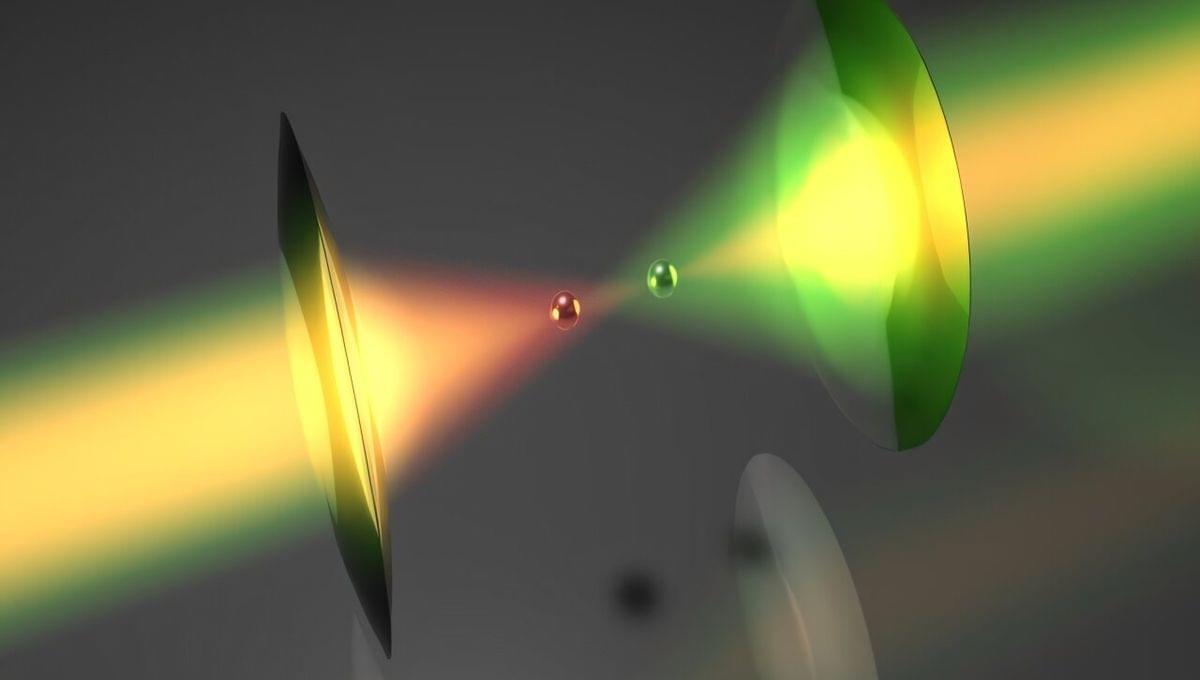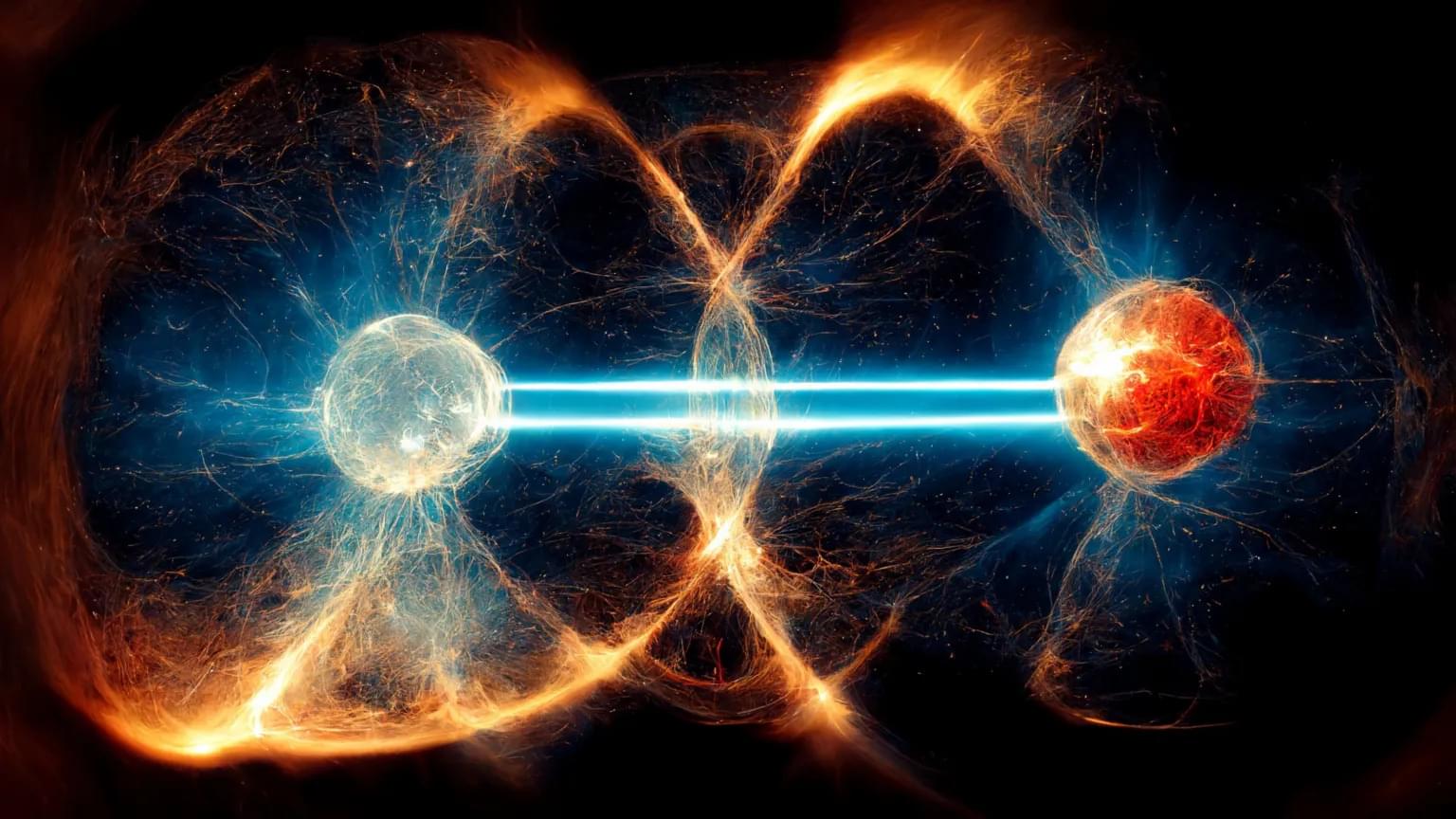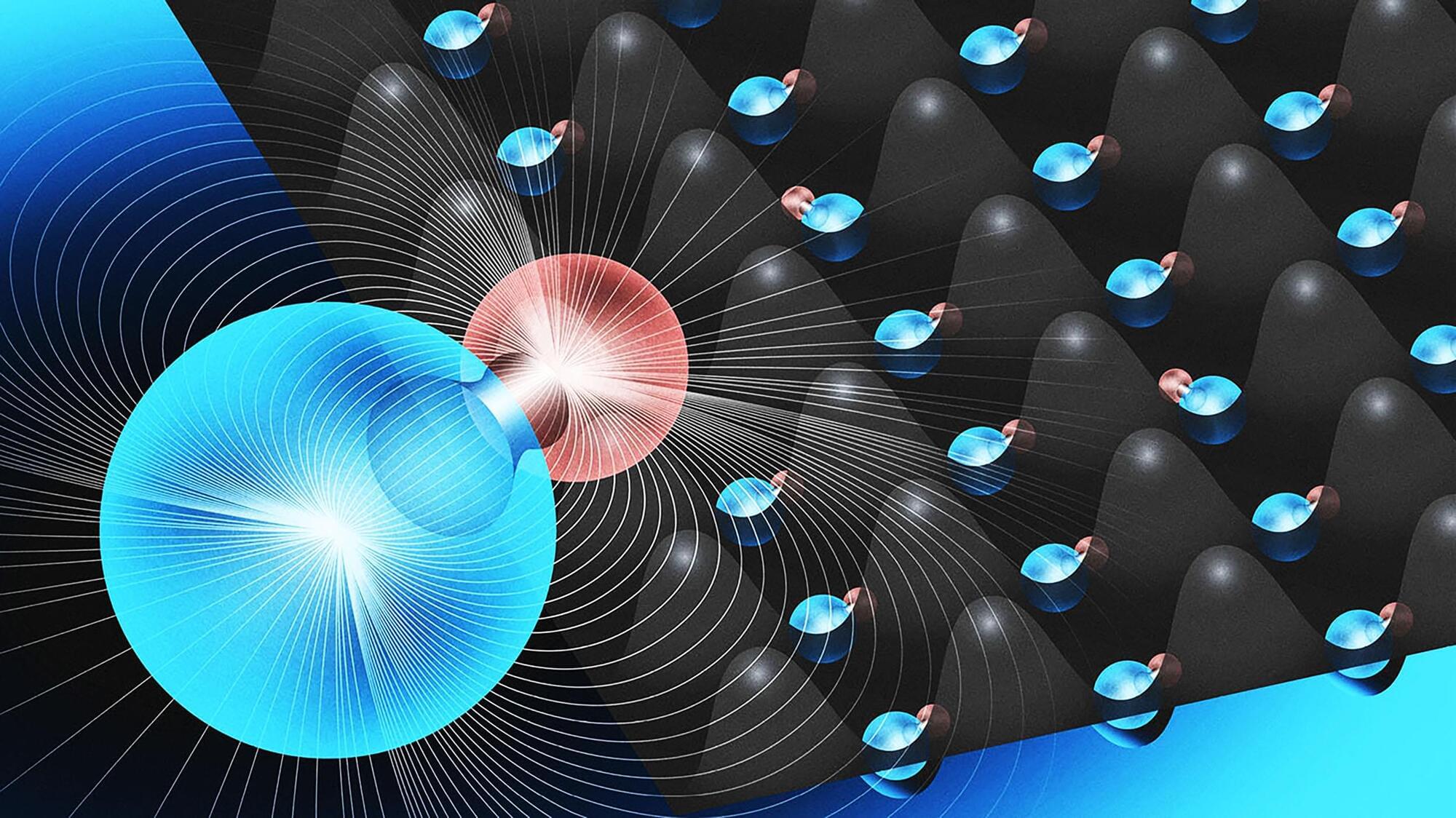Laser beams are being used to trap glass spheres in a peculiar interaction.



A team of engineers, physicists and computer specialists at Canadian company, Xanadu Quantum Technologies Inc., has unveiled what they describe as the world’s first scalable, connected, photonic quantum computer prototype.
In their paper published in the journal Nature, the group describes how they designed and built their modularized quantum computer, and how it can be easily scaled to virtually any desired size.
As scientists around the world continue to work toward the development of a truly useful quantum computer, makers of such machines continue to come up with design ideas. In this new effort, the research team built a quantum computer based on a modular design. Their idea was to build a single basic box using just a few qubits for the simplest of applications. As the need arises, another box can be added, then another and another—with all the boxes working together like a network, as a single computer.
A general approach to a quantum theory of gravity has found a surprising relationship between the quantum fields of massive particles.
A clip from Consciousness Live! featuring Philip Goff and Richard Brown discussing structural realism, string theory, and Russellian Monism.


A team of physicists and engineers at the University of Colorado Boulder has discovered a new way to measure the orientation of magnetic fields using what may be the tiniest compasses around—atoms.
The group’s findings could one day lead to a host of new quantum sensors, from devices that map out the activity of the human brain to others that could help airplanes navigate the globe. The new study, published in the journal Optica, stems from a collaboration between physicist Cindy Regal and quantum engineer Svenja Knappe.
It reveals the versatility of atoms trapped as vapors, said Regal, professor of physics and fellow at JILA, a joint research institute between CU Boulder and the National Institute of Standards and Technology (NIST).

What exists at the core of a black hole? A research team led by Enrico Rinaldi, a physicist at the University of Michigan, has leveraged quantum computing and machine learning to analyze the quantum state of a matrix model, providing new insights into the nature of black holes.
The study builds on the holographic principle, which suggests that the fundamental theories of particle physics and gravity are mathematically equivalent, despite being formulated in different dimensions.
Two prevailing theories describe black holes from different dimensional perspectives. In one framework, gravity operates within the three-dimensional geometry of the black hole. In contrast, particle physics is confined to the two-dimensional surface, resembling a flat disk. This duality highlights a key distinction between the two models while reinforcing their interconnected nature.

MIT physicists, in collaboration with colleagues, have measured the geometry—or shape—of electrons in solids at the quantum level for the first time. GOOD. Ask the MIT physicists: 1. What is the physical reality of quantum physics? 2. How is your quantum level defined? 3. What is the spacetime background of your quantum level?
What one researcher see or touch about an elephant will be different, and what different researchers see or touch will be even more different. It is a scientific phenomenon, not the essence of nature. Scientific research guided by correct theories can enable researchers to think more.
According to the Topological Vortex Theory (TVT), spins create everything, spins shape the world. There are substantial distinctions between Topological Vortex Theory (TVT) and traditional physical theories. Grounded in the inviscid and absolutely incompressible spaces, TVT introduces the concept of topological phase transitions and employs topological principles to elucidate the formation and evolution of matter in the universe, as well as the impact of interactions between topological vortices and anti-vortices on spacetime dynamics and thermodynamics.